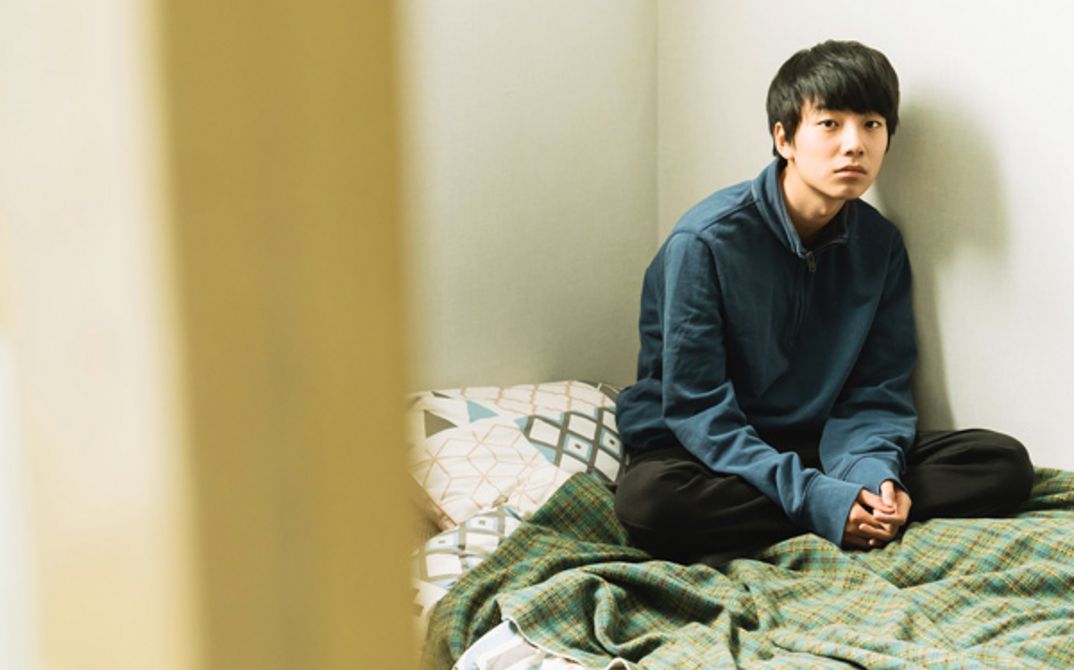The power of compassion
Measured against the intensity of pain caused by the death of a loved one, the traditional form of consolation that is customary in our society has always been more of a feeble gesture.
Insufficient empathy sometimes even deepens the pain. I wish this story to be a bit of comfort to those who are in pain, while spreading the power of compassion to society. (Shin Dong-seok)
Conversation with Shin Dong-seok: “You can only really console others with sincerity”
How did you come to write and direct LAST CHILD?
Shin Dong-seok: When I was in my early twenties, there were several unexpected deaths among people I knew. It put me through an extremely difficult emotional rollercoaster, and the clichéd words of solace that people offered me in fact hurt me on a deeper level. At the time, I didn’t realise it was a process of mourning, in its own way. I have a memory of causing more pain to someone with such a clichéd expression of sympathy, too. Knowing that you can only really console others with sincerity caused me anguish: I wanted to avoid at all costs spitting out banal words of consolation. Whenever I wrote a script, the story usually began after the death of a family member. Then I ended up making LAST CHILD.
What was working with the actors like?
I was extremely happy when we locked in the main cast, because they were the same actors that I wanted for the roles after completing the first draft. Choi Moo-seong, who has extensive experience as a stage director, fully grasps the director’s mind. That’s why we often discussed only the details of the tone of a scene. And he delivered the performance that was right for it. Kim Yeo-jin had an amazing ability to understand the script and empathise with her role. Seong Yu-bin had prepared a lot. Yet, when the camera started rolling, he was able to give a natural and spontaneous performance. Once he even suggested doing another take of a scene I was satisfied with because he had omitted an emotional detail that he was intending to express. I was blown away by that. It really helped me a lot that the feedback from cast was precise and on-point.
How did you come up with the title LAST CHILD?
I wanted to go with a title that emphasises the choices made by the main characters, who experience the main incident in the film. From the couple’s point of view, this is a story about the process of accepting a boy whom their son saved in exchange for his own life. The ‘last child’ is the saved boy. In addition, I wanted to include Kihyun’s decision to remain with the couple to the end.
How would you describe solace?
The attempt to offer solace can have the opposite effect and deepen wounds and pain. The same actions and words of consolation can miss the mark if it’s not the right time for the other person. But if the intentions are sincere, I believe they won’t be meaningless. And eventually, one day some of them will touch the other person.
What did you focus on the most in directing the film?
While writing the script, I contemplated how the audience could have a balanced view of all three characters and not lean emotionally towards anyone in particular. The story unfolds from the couple’s point of view, but each of them has a different way of mourning, and thus, conflict occurs. Even as we empathise with their pain, I didn’t want to take attention away from the changes we see in the character of Kihyun. I also thought hard about finding the right distance in expressing the characters’ complex emotions. I wanted to position the camera as if it was the characters’ close friend. I wanted to convey the feeling of supporting the character from the usual close range, and when the character starts suffering, take a step back, but still stay near and wait until the suffering subsides.
When Sungcheol and Misook take Kihyun near the river where their son died, what are they thinking?
When they fail to mourn their son’s death as intended, and the truth of his death is unclear, I think Sungcheol and Misook’s desire to give up must be great. However, for Sungcheol, it is rage that pushes him to blame Kihyun for causing his life to become meaningless; while for Misook, it is more about wanting her pain to end as soon as possible. After finishing the script with the intention of understanding the characters’ actions and emotions as much as possible, I believe that admitting you cannot perfectly understand the characters helps when you start shooting the film. I think I was like this when we were shooting the scene mentioned in this question. After I saw the scene with the actors actually performing, I felt I had a better understanding of Sungcheol and Misook.
(Interview: ato)
